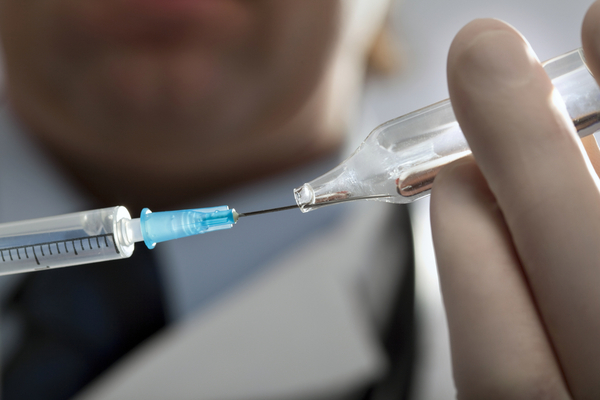3 Changes to Children's Vaccine Recommendations Announced

The nation's largest pediatrician group today released its new schedule of recommended childhood vaccinations. It made three major changes to its previous recommendations, after a federal advisory panel of experts reviewed recent evidence from vaccine studies.
The biggest change is the new recommendation that boys should be vaccinated against human papillomavirus (HPV). Since 2006, the HPV vaccine has been recommended for girls, primarily to help prevent cervical cancer, and in 2009, the experts advised that boys "could" be given the shots, too.
The stronger wording in the new recommendations, that boys "should" be given the shots, came about because new data showed giving boys the vaccine can help lessen the odds of HPV-associated cancers in men and in women, said Dr. H. Cody Meissner, chief of pediatric infectious disease at the Floating Hospital for Children at Tufts Medical Center in Boston.
Meissner was part of the group of experts updating this year's recommendations from the American Academy of Pediatrics; the panel also included experts from the Centers for Disease and Prevention, which had previously recommended the HPV vaccine for boys.
The new vaccination schedules are published today (Feb. 1) in the journal Pediatrics.
Routine HPV vaccinations for boys
The new guidelines call for boys to get the first of the three doses of HPV vaccine at age 11 or 12, the same age the shot is recommended for girls.
Sign up for the Live Science daily newsletter now
Get the world’s most fascinating discoveries delivered straight to your inbox.
HPV vaccinations are also advised for young men ages 13 to 21 if they've not yet had all three shots. It may be given to boys as young as 9 and to men between 22 and 26.
Young people are encouraged to get all three shots, given over a 6-month period, before they become sexually active.
"Every parent likes to think their child is not sexually active in their early teen years," Meissner said. "But if you wait until they're sexually active, you miss the benefit of the vaccine."
The vaccine has been known to protect against genital warts in males and females, and recent evidence has shown it can prevent anal cancer in men and women. The HPV vaccine has also been shown to be protective against penile cancers, as well as head and neck cancers.
Updates to meningococcal and flu vaccines
The meningococcal and flu vaccines are the focus of the other two changes to the guidelines.
A booster dose of the meningococcal vaccine is now recommended for children at age 16. The previous schedule recommended children be routinely immunized against meningococcal disease, which prevents most types of meningitis, when they are 11 or 12.
Infectious disease experts had thought that one dose of meningococcal vaccine would protect a young person through the college years, Meissner said. "But data became available that the vaccine doesn't last that long, and the risk goes up late in the teen years," he said.
Teens are now advised to get a booster dose to make sure that protection is maintained through the high-risk window, which occurs between 16 and 21 years, when many are living in close quarters, such as in college dormitories.
Some slight tweaks were also made to flu shot recommendations. This was the second year the AAP is recommending that children 6 months and older need to get the annual flu shot, Meissner said.
The new schedule clarifies the guidance for giving the flu shot to kids with egg allergies. Studies have shown the amount of egg protein in the flu vaccine is not enough to produce an allergic reaction in those with mild allergies, who can eat cooked eggs, Meissner said. Still, the flu shot may not be appropriate for people with a severe egg allergy, he said.
Advice for parents
A lot of parents are nervous about the number of shots recommended for children and teenagers these days, and they want to know how long each vaccine has been around, and how serious the risk is if their child does not get it, said Dr. Peter Greenspan, medical director of MassGeneral Hospital for Children in Boston.
He said he has noticed that parents are getting increasingly discerning about immunizations. "I find that parents really want to know the whys about the vaccines, which is entirely appropriate and important information for doctors to share," Greenspan said.
When new changes are made to the vaccination schedule, he said, "it's just a matter of explanation and discussion with your pediatrician."
Pass it on: Experts now recommend that pre-teen boys get vaccinated against HPV, that 16-year-olds be vaccinated against meningitis and that almost all children receive a flu shot annually.
This story was provided by MyHealthNewsDaily, a sister site to LiveScience. Follow MyHealthNewsDaily on Twitter @MyHealth_MHND. Find us on Facebook.
Cari Nierenberg has been writing about health and wellness topics for online news outlets and print publications for more than two decades. Her work has been published by Live Science, The Washington Post, WebMD, Scientific American, among others. She has a Bachelor of Science degree in nutrition from Cornell University and a Master of Science degree in Nutrition and Communication from Boston University.
Measles has long-term health consequences for kids. Vaccines can prevent all of them.
100% fatal brain disease strikes 3 people in Oregon









